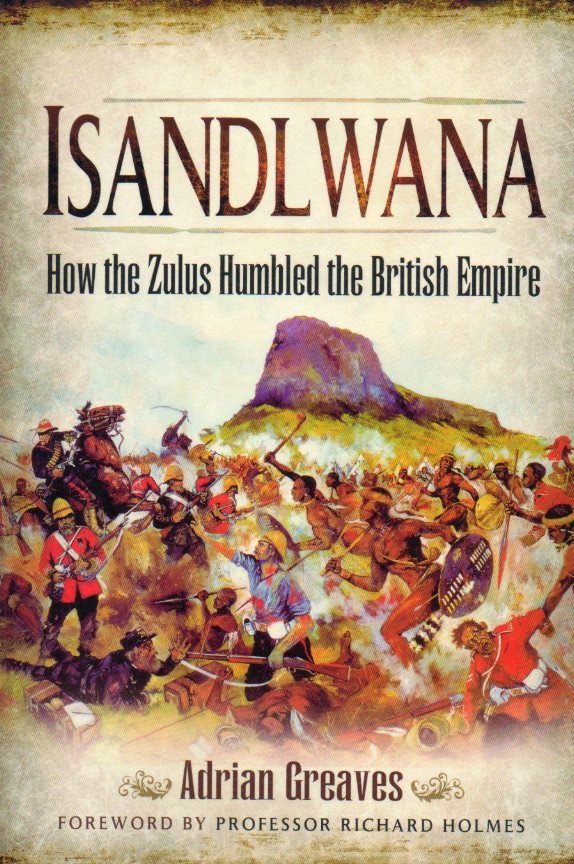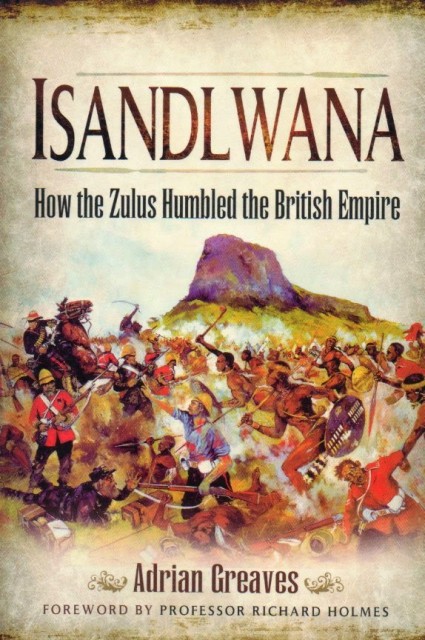I make no excuses for loving the film Zulu. I know it isn’t entirely accurate and, as the author of this book tells us, has helped propagate a number of myths about the battalions who fought at Isandlwana and Rorke’s Drift on those dramatic days in January 1879. But the film is special to me and I can remember being one of very few people in the house when it played on a re-run at the Carlton cinema in Essex Road, Islington back in the 1970s. In fact, it was the last film to be shown there before the cinema was converted into a bingo hall.
The follow up movie made some years after the original, Zulu Dawn, was intended to show the disaster at Isandlwana in a vein that would appeal to American audiences seeing the redcoats getting whipped. I remember the production was plagued with several problems, not least the extras wearing colourful y-fronts under their traditional national dress.
If only underwear had been the only problem facing Lord Chelmsford when he launched his invasion of Zululand back in 1879. Sadly though, his biggest problem was the immense block of arrogance blinding his train of thought. Emboldened by the success of other conflicts he took his army into legend on the basis that African armies would not fight well lead Imperial troops. This entirely ignored the horrible truths that the Zulus were totally unlike any Africans the Brits had fought before, or that his army was entirely in the hands of high quality officers. It wasn’t.
And so we find ourselves trying to fit our minds into what it must have been like for the just over a thousand strong British force which found itself under attack from twenty-five thousand highly motivated murderous opponents on that lovely day, 22nd January, 1879. We know one thing for sure; they were cut to pieces in very short order. We know the few survivors had a story of all kinds of horrors to tell. We know versions of the battle – but what is the truth?
This fantastic read by Adrian Greaves makes a solid stab at clearing up all the myths about Isandlwana. Events at Rorke’s Drift and a succession of other bloody encounters are alluded to but not described. The Battle of Isandlwana sent a shock wave through the colonial communities of South Africa and across the world to London, the hub of the Empire; where the news was treated with immense shock.
Chelmsford had survived by dint of his wild goose chasing around the hills near the battlefield looking for an enemy who knew how to draw him away. They were a brave and very clever bunch who must never be underestimated. I think it fair to say that the racially inspired fog many an imperialist clouded himself in was well and truly blown away by the Zulus, but it didn’t gain them anything. The British learned how to deal with them and came on and on until they had been tamed.
The author explains the background to it all and gives us much about the men who fought and died as well as fought and lied in Zululand. As ever, when there is a disaster there has to be scapegoat. Conveniently for Chelmsford, Colonel Durnford of the Royal Engineers was dead and could not defend himself from some judicious truth bending by Chelmsford’s staff. The colonel had done his very best on that tumultuous day when others were gadding about or faffing. This reminds me of the Sudan book I covered a while back where another engineer took the fall for the failings of others. Maybe it was just the way of the Victorian army.
I have really enjoyed this book. It has cleared a few things up and cemented much I did know. I suppose for an American audience this sort of story would resonate with the Indian Wars of the same period and I think this is a fair comparison.
The Zulu army abounded with brave and wonderful soldiers dripping with tradition and a will to fight. The British had men of equal quality and stamina, but at the end of the day we can easily look back with high moral hindsight and dislike the reason for them being there and the people leading them. But that is far too simplistic and not a little convenient. We cannot infuse our modern morals and correctness on people of a century or more ago from a nation flushed with imperial majesty and confidence. I find it very difficult to put myself in the heads of these soldiers. But it has to be admitted that so much of the colonial adventure was thrilling, was brimming with heroics and it was all pretty remarkable.
I really liked the build up to the key event with explanations of how the Victorian army was manned and details of the key people from the tragedy about to unfold. Information on units and tactics provide a spine to the saga and, as said, the author has put to rest a few myths and ghosts about so many things I am really pleased to have got it all locked in my head.
I have read and treasure a number of Zulu War books and this one will be going on the pile. My son and I have been hankering about owning a classic Martini-Henry rifle of the period, based almost entirely on reverence for the heroic event at Rorke’s Drift that has long eclipsed events at Isandlwana. Among my treasures I have aHinchliffe metal model of a 24th Foot officer from the battle I made back in the 70s and he doesn’t look anything like Michael Caine or Stanley Baker.
As for this book, I’ve deliberately left out the specifics because I would prefer you to read it for yourselves. This is a softback edition and sad to note the forward is from the glorious Richard Holmes who is no longer with us. Perhaps he has been doing the rounds in heaven getting the facts from men like Durnford, and, knowing him, Lord Chelmsford too. History is all about balance and setting the facts straight. With this book the author does it all with aplomb. This one is a keeper.
Review by Mark Barnes for War History Online
ISANDLWANA
How the Zulus Humbled the British Empire
By Adrian Greaves
Pen & Sword Military
ISBN: 978 1 78346 262 9

